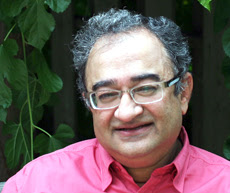Tuesday, June 14, 2005 Page A7
Shirin Ebadi decries Islamic law for Canada
By INGRID PERITZ
Globe and Mail
http://tinyurl.com/do3l7
MONTREAL -- Nobel laureate Shirin Ebadi, a leading human-rights crusader in her native Iran, took a firm stand against the introduction of Islamic tribunals in Canada yesterday, warning they open the door to potential rights abuses.
"I'm against having several courts and separate laws," said Ms. Ebadi, who was in Montreal to receive an honorary degree from Concordia University.
"One country, one legal code, one court -- for everybody."
Ms. Ebadi, the first Muslim woman to win the Nobel Peace Prize, said she opposes the idea because Muslim law is vulnerable to interpretation. As one extreme example, some Muslim countries allow polygamy and others do not.
"Which interpretation would apply here?" she said in an interview, speaking through an interpreter. "Because there are many interpretations of the same Islamic teachings and laws, it's not clear what interpretation will be used. Often, a lot of the interpretations are anti-democratic and against human rights. That is my main concern."
The advent of traditional Islamic law, or sharia, to settle family disputes has set off an impassioned debate in Canada ever since a Muslim group proposed setting up an arbitration panel in Ontario. An Ontario report has recommended an Islamic arbitration system. But Quebec's National Assembly this month voted unanimously to oppose Islamic tribunals, saying they undermined democratic values. Ms. Ebadi said her comments can be interpreted as support for Quebec's position.
Ms. Ebadi, who won the Nobel Prize in 2003, has taken up the cause of women and children in Iran. and her vocal defence of human rights has led to frequent clashes with Iran's theocratic leaders. A long-time lawyer and former judge, she heads a group in Iran that offers legal support to prisoners of conscience including journalists, political dissidents and student activists.
She has also strongly protested against the decision by Iran's Guardian Council to bar women from running in this Friday's presidential election. Ms. Ebadi is boycotting the vote.
Ms. Ebadi's visit to Montreal also marked an occasion to visit her daughter, 25-year-old Negar, who studies electrical engineering at McGill University. The Nobel laureate said she prefers Canada to the United States, where a harsher climate since the Sept. 11, 2001, terrorism attacks has made life more difficult for Muslims.
"I find the political system and environment much better in Canada than the United States," she said. "Multiculturalism is respected in Canada."
In her commencement address, she said that the 9/11 terrorist attacks have made it "almost impossible" for foreign students to study there. "We must separate people's mistakes and sins from their religion and national origin," she said.
In the interview, Ms. Ebadi also urged Canada to keep pressure on Iran in resolving the death of Iranian-born Canadian Zahra Kazemi, the Montreal-based photojournalist who died in custody in Iran after being arrested in 2003.
"It appears the courts are basically trying to waste time in hopes this story will fade away and the public will forget about it," said Ms. Ebadi, who represents the Kazemi family in Iran.
June 14, 2005
Subscribe to:
Post Comments (Atom)

No comments:
Post a Comment